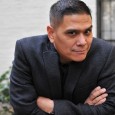It’s nearly unbelievable that we are in an election cycle in the United States. And I am managing a surprising amount of anxiety.
Look at where we are. We are still in the midst of a global pandemic - one that has forced many of us to limit our movements, our socializing, our work and our personal budgets. Immigrants are still the subject of aggressive and dehumanizing policies and practices in the US from government agencies and the news media. The stunning amounts of police violence aimed at Black, indigenous and other people of color in the US is in focus again. And there have been protests, globally. All the while, we have a Presidential election that is vitally important and affects the entire HIV community.
On the ballot, amongst many other issues: pre-existing conditions for health insurance; LGBTQ protections; leadership in federal agencies that listen to us and respect our diverse community voices; sexual and reproductive rights; and exploring sustainable environmental solutions.
Concerning the vote: there are some people who believe that we all deserve the same sense of safety and rights, and some who do not. This year has brought this conflict into more clarity: how many jobs and businesses are precarious, who is worried about rent and food, who matters in terms of health care and even death.
Each media network frames our experiences in whatever way suits them: some of us are deemed traitors for demanding government accountability; some protests are understandable and others are considered chaotic; sometimes police are villains, other times heroes, rarely public servants with questions of accountability. I search for better conversations but news and social media have limits.
Where could my anxiety be coming from?
I am afraid some days - of what happened, of how it’s reported, of this sinking feeling that I’m missing something huge happening. Everyone is stressed - about the pandemic and masks, about the economy and jobs, about the dangers some of us face from the police or random strangers. Trans women of color are still being killed at an alarming rate. Black men and women are still being killed and experiencing violence at the hands of law enforcement with impunity. Indigenous people are left confronting the pandemic and other health issues with little to no support from the federal government. Mental health and disability are seen as weaknesses in the US, rather than key parts of our experiences that we need to embrace, understand and make space for.
In No Ashes in the Fire, Darnell Moore writes, “any home where some of the inhabitants are unwanted or neglected isn’t much of a home at all.”
Where is the discourse about the social safety net, the feelings of precariousness that most of us have been feeling for a long time, the reality of how much we need and how little we have, the loss of connection we feel to nature and its life cycles? Beyond our political party, we all share key questions and concerns about the quality of our lives. How do we fight to build a home for us all in this country? How does the HIV community come together through this divisive time?
I am scared for us. As violence against people of color and people of trans experience becomes more normalized in the United States, I worry about what happens as we approach the election. Intimidation tactics - including armed white men in public - have been rampant since the start of the pandemic. Pay attention when out in public, travel with friends when you can. Our social connections will bolster us through these times.
Since Covid19, we have lost so much. And we learned what we may need to stay in our homes:
- food and water supplies,
- medications,
- contact information for our support network,
- regular check-ins,
- some just-in-case cash,
- power for our cell phones and laptops,
- marijuana (for some of us)
The world needs to transform, to grow past old institutions and patterns that demean and dehumanize so many of our HIV community.
In Notes of a Native Son, James Baldwin wants us to see “life as it is, and men as they are” in order to see injustice, but he also demands “that one must never, in one’s own life, accept these injustices as commonplace but must fight against them with all one’s strength.”
Voting is one strategy - an important one. Vote early and vote by mail, if you can. The US People living with HIV Caucus supports people voting, getting their voices heard. And we also support work and programming throughout the year to actively challenge systems that marginalize and oppress us. The HIV community has changed the world, and together, we can continue to be part of transforming the world and its systems into a better place.








Comments
Comments